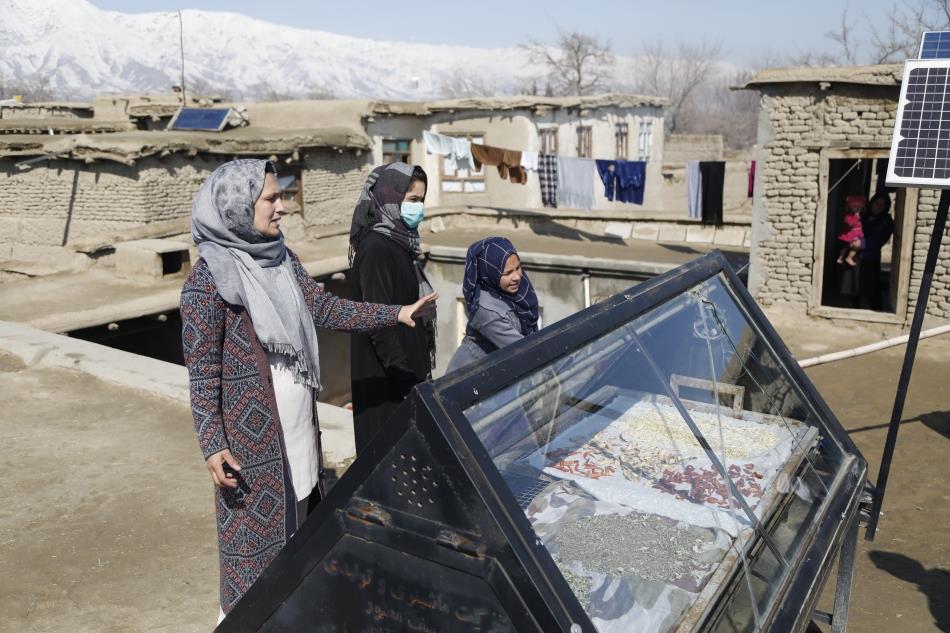Building up self-reliance and livelihoods of Afghani women
Mushtari has become a role model to many other women in her community and outside of it.

Mushtari Hesari explaining hygienic food production practices to women in her community. ©FAO/Azizyar
“Now not only have I managed to support my family economically but I have also gained many life skills that have assisted me to generate an income, educate my children and help them have a better future,” says Mushtari Hesari, a mother of four children living in the Parwan province of Afghanistan. She believes that if she can be a self-sufficient woman, others can be too.
While women are equal in number to men in Afghanistan, their participation in socio-economic affairs is negligible. Women are not fully involved in many issues due to cultural norms, lack of literacy and education on certain socio-economic topics. Mushtari believes that if better opportunities are provided to women, they can provide considerable support to a household’s economy.
Mushtari lives in a place where women are rarely involved in making decisions about their life and their future. Economically, they are very dependent on the male members of the family. However, as an educated woman who graduated from the faculty of literacy, Mushtari always thought of improving the lives and livelihoods of the women in her community. This led her to take the next step and do something for the women in her community.
